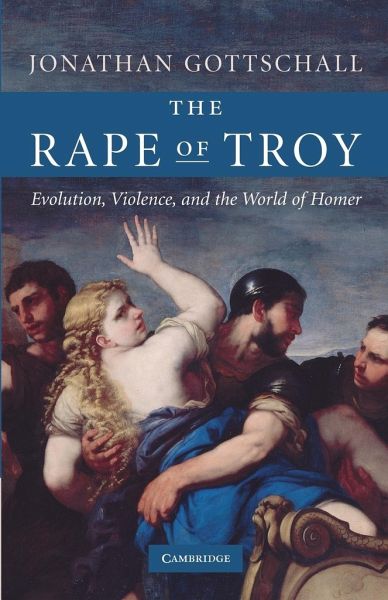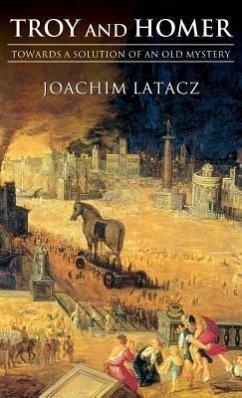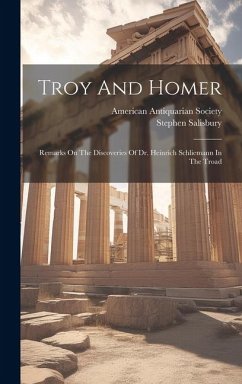
The Rape of Troy
Evolution, Violence, and the World of Homer
Versandkostenfrei!
Versandfertig in 1-2 Wochen
46,99 €
inkl. MwSt.
Weitere Ausgaben:

PAYBACK Punkte
23 °P sammeln!
Homer's epics reflect an eighth-century BCE world of warrior tribes that were fractured by constant strife; aside from its fantastic scale, nothing is exceptional about Troy's conquest by the Greeks. Using a fascinating and innovative approach, Professor Gottschall analyses Homeric conflict from the perspective of modern evolutionary biology, attributing its intensity to a shortage of available young women. The warrior practice of taking enemy women as slaves and concubines meant that women were concentrated in the households of powerful men. In turn, this shortage drove men to compete fiercel...
Homer's epics reflect an eighth-century BCE world of warrior tribes that were fractured by constant strife; aside from its fantastic scale, nothing is exceptional about Troy's conquest by the Greeks. Using a fascinating and innovative approach, Professor Gottschall analyses Homeric conflict from the perspective of modern evolutionary biology, attributing its intensity to a shortage of available young women. The warrior practice of taking enemy women as slaves and concubines meant that women were concentrated in the households of powerful men. In turn, this shortage drove men to compete fiercely over women: almost all the main conflicts of the Iliad and Odyssey can be traced back to disputes over women. The Rape of Troy integrates biological and humanistic understanding - biological theory is used to explore the ultimate sources of pitched Homeric conflict, and Homeric society is the subject of a bio-anthropological case study of why men fight.












